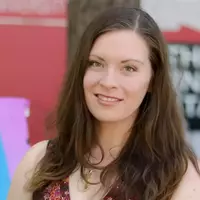Opportunities for Classroom Observation Protocols to Advance the GER Community Framework
Authors
 Katherine Ryker, University of South Carolina-Columbia
Katherine Ryker, University of South Carolina-Columbia
 Rachel Teasdale, California State University-Chico
Rachel Teasdale, California State University-Chico
 Kelsey Bitting, Elon University
Kelsey Bitting, Elon University
Third-party observations using validated observation protocols (OPs) provide a reliable way of recording teacher and student behaviors across different classrooms and institutions. Observations can be used to address research questions exploring the relationship between pedagogical strategies geoscience faculty use and outcomes important to the field (learning outcomes, affective variables, professional development impacts, etc.). We examined peer-reviewed STEM publications from 1990-2022 that discuss using OPs, and identified sixteen OPs that we believe offer particular value in postsecondary geoscience contexts. All sixteen have been used in higher education or K-12 STEM classrooms taught by primary instructors, and provide formats for a third-party observer to capture details of teaching and learning behaviors and the structures that organize them.
After a systematic examination of how the OPs have been used, constructs they assess, and other characteristics (e.g. training requirements), we evaluated the GER Community Framework for opportunities to use OPs to address grand challenges and research strategies therein. Approximately 41% of the research strategies supporting the grand challenges included a role for OPs. The grand challenges with the highest proportion of research strategies that can be addressed using OPs are Research on Geoscience Students' Self-Regulated Learning, Metacognition and Affect (81.8%), Research on Institutional Change and Professional Development (76.9%) and Research on Access and Success of Under-Represented Groups in the Geosciences (75%). Other GER Community Framework themes have 13.3-48.0% research strategies that could be addressed, in part, using OPs. These findings indicate that there is a significant potential role for OPs in addressing the grand challenges described in the GER Community Framework. Here, we discuss ways that OPs can be used to advance research, professional development and self-reflection opportunities that align with the GER Community Framework.


